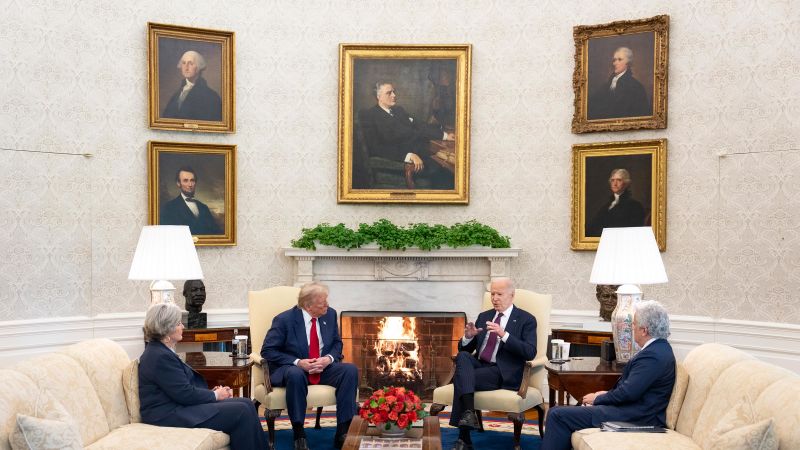Occupied Jerusalem Since October 7th Until mid-August, The Israeli occupation carried out Jerusalem And its suburbs, 1652 arrests, according to statistics from the Jerusalem Governorate.
The Palestinian Authority for Prisoners’ Affairs and other human rights organizations, including Israeli organizations, have repeatedly confirmed that Palestinian prisoners are being subjected to escalating attacks, at a time when the occupation’s prisons have been described as hell.
Al Jazeera Net met with Jerusalemite lawyer Nadine Abu Arafa, who, as part of her work at the Center for the Defense of the Individual (HaMoked), visited dozens of Palestinian and Jerusalemite prisoners, and was active in following up on the conditions of prisoners and their detention, and in trying to obtain their basic rights.
-
First, what is the nature of the attacks on the prisoner during his detention?
The impact of the attacks since October 7 has been felt in their escalating frequency, with home invasions occurring at night or at dawn by large numbers of police and border guards in full view of children.
During the raids, the prisoner and his family are subjected to physical and psychological violence. Once, they raided a house to arrest a young man, searched his mother’s closet, and called his younger brother to see her underwear.
As for minor detainees, the elements do not take into account the application of the laws pertaining to them, especially during arrest. As for adults, this is a luxury and a privilege that they do not receive, and the severity of the treatment varies according to the mood of the officer who ordered the arrest. After that, most of the Jerusalemite detainees are taken to the Al-Maskobiyya Center before being distributed to the rest of the Israeli prisons.
There is a systematic Israeli policy that they clearly and frankly demonstrate in the courts and other halls, saying that “the situation before October 7 is not the same as it was after.”
-
How are prisoners’ basic rights to food and personal hygiene violated?
In addition to the physical assaults, there is a clear and premeditated intention on the part of the Israeli Prison Service to provide the prisoner with the amount of food that will ensure that he does not die, as has been repeatedly stated by leaders such as the Minister of Internal Security. Itamar Ben Gvir And others, and they justify this by saying that a person who does not do any activity during the day does not need calories, and in the long run there is an intention to weaken and make the Palestinian prisoner’s body thin.
There is also a deprivation of maintaining personal hygiene, and sometimes using the bathroom is conditional on going to the “furah”, and when the furah is forbidden, it becomes difficult to go to the bathroom, and if the prisoner is able to do so, it is for a few minutes, without taking into consideration the health needs of the body during the summer.
The scarcity of cleaning materials, some of which are expired, also leads to the spread of skin diseases among prisoners.
Each prisoner gets one roll of tissue paper for all uses throughout the week, even if he has a cold or a severe runny nose.
-
Speaking of the spread of diseases, what are the most prominent diseases that affect prisoners?
The most prominent diseases are scabies, lice, and various types of skin allergies. There are also diseases that prisoners cannot diagnose, and the prison clinic does not take them seriously.
We have heard many times about disturbing phenomena, such as the presence of spots bleeding blood and pus on the prisoner’s body, in addition to lice that are not limited to the hair of the head only, but extend to the hair of the body and sensitive areas, and this makes shaving the hair and getting rid of the lice difficult, because shaving, if available, is limited to the “flare” period, and the prisoner cannot then shave publicly in front of the other prisoners.
In addition, infectious skin diseases cause isolation for the prisoner, because his roommates avoid him to avoid getting sick, and diseases spread quickly due to overcrowding in the rooms, as there are at least 13 prisoners in a room without ventilation or fans.
-
What about medical negligence in prisons?
Medical negligence is embodied in the disruption of the concept of a real medical clinic. Even when the prisoner goes to it, his illness is not diagnosed or given the correct treatment, and his problem, no matter what it is, is often solved with a painkiller pill.
There are prisoners who need surgery, but their medical files are delayed, so they are forced to intervene themselves or with the help of other prisoners who are not medically qualified.
One of the prisoners had an ingrown nail, and with the prohibition on using nail clippers, his health condition worsened, and the prison clinic refused to remove it by surgery, so he took a painkiller pill and asked the prisoners to remove it themselves without having the experience, and he remained in pain for a whole week.
The Jerusalemite prisoner Ishaq Arafa, who was sentenced to life imprisonment and is threatened with having his identity card revoked, lost 35 kilograms of his weight, like the rest of the prisoners. When he asked for his health condition to be monitored, they told him, “We only respond when you die.” When we presented this situation to the judge in the Israeli court, the judge ignored the matter.
-
What are the issues that prisoners also suffer from that are not highlighted?
We often hear in the media about food shortages, neglect of personal hygiene, and physical assaults, but we do not hear as much about preventing communication with family and depriving prisoners of visits as if they were luxuries. This applies to all prisoners, but it is prominent among Jerusalemite prisoners because their families’ visits to them were previously easier compared to those from the West Bank (because they have permanent residency and do not need a permit). Also, lawyers’ visits to prisoners are not always easy and there is great oversight over them.
This is clearly evident in the effect of preventing communication with the family when we visit the prisoner. He is tough and composed, but when we convey our greetings to his family and mother, he appears affected and longing.
Under the title “Welcome to Hell”, the Israeli human rights organization B’Tselem issued a report documenting the change in the conditions of detention of Palestinian prisoners in Israeli prisons after October 7. We convey to you part of the testimonies of Jerusalemite prisoners about the inhumane conditions they experienced in the occupation prisons.@Aljazeeraquds… pic.twitter.com/7jJvrRde02
— Aljazeera.net • Al Jazeera Net (@AJArabicnet) August 8, 2024
-
Will your legal petitions succeed in obtaining the prisoners’ rights?
The large number of petitions makes us feel the effects in the long term. Since October 8, we have submitted numerous initial and individual petitions, and in both cases there was a dynamic response from the Israeli court, coinciding with the passage of months in the war. In the beginning, the courts deliberately gave the Prison Service a free hand in all its actions towards the prisoners, under the pretext of the state of emergency and war.
There is a Jerusalemite prisoner named Rashid Rashq who is serving a 13-year sentence and is threatened with having his Jerusalemite ID revoked. We filed petitions in his name to obtain basic personal belongings, including underwear. We even went to 3 courts to request additional underwear. I remember that during the session he spoke via videoconference saying, “I feel ashamed that 15 people are now talking about one pair of underwear.”
-
What are the most common charges against Jerusalemite prisoners?
I can say that most of the prisoners whose files I have reviewed since October 7th were transferred to administrative detention, which does not include a specific charge or indictment and is renewed many times without a specific date for release. As for the rest, their charge is incitement via social media, and the punishment is not commensurate with the charge, which is usually simple, but is exaggerated under the pretext of war.






